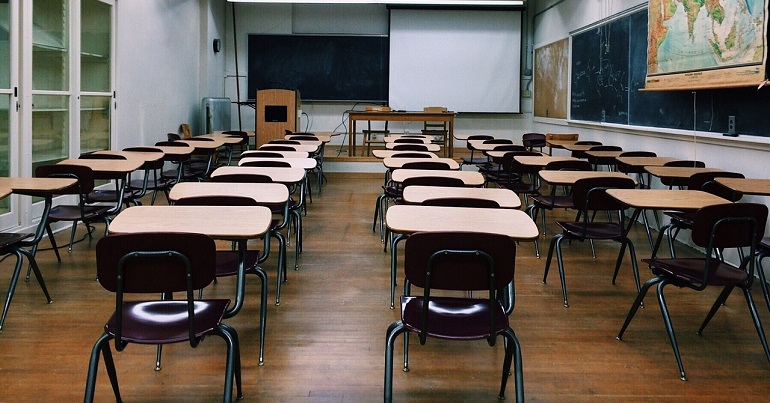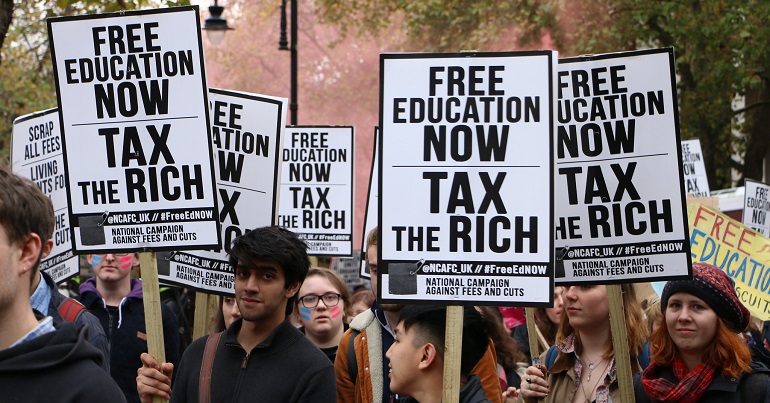Our education system needs to be rebuilt, with wellbeing at its heart

Do you remember when “the new normal” was a thing? Filled with the romance of a month at home, we pledged to change the world. Then our rush to open everything began, meaning we accommodated the old normal in our new world, rather than looking at actually changing.
It’s a problem the UK education system knows well. In the 2000s, the education technology quango BECTA discussed how the virtual world “Second Life” could engage learners. Some institutions took up the idea, building simulated schools with corridors, classrooms and blackboards. But learners in Second Life wanted something different from an online world than from the real one, while the system simply couldn’t move beyond the traditional model.
Previous opportunities failed to make changes either. The Building Schools for the Future programme was a chance to re-imagine learning space, but it was more about construction contracts and outsourced facility management than about actual learning. Some even built “classrooms of the future” complete with space age windows and funky laptops…but they didn’t think beyond the classroom itself.
The Conservative obsession with linear learning constrained innovation yet further in the 2010s. People talked of a new type of learning, notably Sir Ken Robinson (who sadly died this month), but it was hampered, again, by attempts to build the new within the old. Learn differently, they said, as long as it’s in classrooms.
In 2020 the school was confronted by the mass closure of classrooms for the first time in history. The system was forced to confront that its basis, a timetabled 9am-3pm series of largely classroom based lessons, was rooted in the needs of Victorian societies, not the agile opportunities of today. They had to confront that many of the education ideas that went beyond the classroom, from thinkers like Montessori, Freire, Robinson and Pető, never moved beyond well-intentioned meetings. What’s more, government had to accept what teachers had said for some time; that schools had become childcare providers for working parents and, in some cases, the sole meal providers for children in poverty.
Parents of children with Special Educational Needs and Disabilities weren’t shocked. Many had already removed their children from school, feeling that the dominant model didn’t fit neurodiverse, motor disorder or learning disability needs. The round-hole model of linear learning, exams and progression for employment, somehow expected practitioners to slot the square peg of pastoral care and social needs in where they could. Many tried with varying success, but in a clinical learning setting there’s little time for radical pedagogy, holistic conductive education or mindfulness.
However, now even the round-peg students who learned well in classrooms couldn’t access exams; the resulting fiascos may have stirred anger in households where children didn’t do as well as expected, but it was nothing new where children were expected not to do well. They already knew this model wasn’t for them. Without the classroom and exams, the crumbling system foundered and the mental health and wellbeing support net, already beyond capacity before the pandemic, strained;. Headteachers are talking about years before young people’s resilience really kicks in and allows them to learn “normally”. Those with anxieties and more complex needs might get left behind entirely. The Prime Minister’s “moral duty” to get kids in school poses risks to the very students he claims it will help.
The government’s new guidance is a sit-and-face-the-front policy, an attempt to cram more children than can fit into a socially distanced classroom. Mandatory attendance, a crack down on bad behaviour (with little apparent regard for the anxiety the changes will cause) and advice to deal robustly with parents is a regressive solution to a regressive problem. Wellbeing is referenced as safety from the virus and the importance of children getting socialisation, safeguarding and meals; but the safety for their mental health in a regressive classroom isn’t mentioned.
The Green Party of England and Wales recently called for wholescale education reform, noting the exam fiascos, the lack of wellbeing for staff and students alike, and the environmental benefits of getting outdoors and challenging the schoolrun. It’s not entirely new though; for decades progressives have spoken about lifelong learning, not just in classrooms but everywhere. Multiple studies show the wellbeing benefits of outdoor, technology augmented and conductive learning. Weaving wellbeing and mindfulness into the curriculum is a desire many teachers have but are not able to realise; but now is the time. It’s a matter of Maslow; disengaged, stressed children won’t learn to the best of their ability.
The new normal must be a time to look again. While local venues stand empty classrooms (or maybe we should say “learning spaces”) could be moved to diverse locations like community halls, parks, farms, places of worship or outdoor forest schools. Remote learning, whether at home with parents or in communities would free-up space in schools and provide new opportunities for children to learn about their local area, food production, culture and flora. For older children with devices, mobile learning could take place almost anywhere at any time. The focus must be on engagement, wellbeing and learning needs, not standardised testing, the latter being a key point in the Green response. How, where and what we learn and how that is measured, can and must change.
The reality is that the government plans for September look to be about cheap, traditional education, benefiting the academic elite and determined, not those needing support and encouragement. Those who find the new system grates on their needs will fall back onto a system over capacity and all those trying to learn in the stressed and stretched classroom will be held back. Teachers know how to address this, but restrictions on autonomy continue their de-professionalisation; the thinking being that government or algorithms know better than the educators or parents.
Boris Johnson’s “moral duty” will ditch the work schools have done to “level up” and squander this once in multiple-generations opportunity to really make lifelong learning, with wellbeing at its heart, the culture of today’s learners.
PS. We hope you enjoyed this article. Bright Green has got big plans for the future to publish many more articles like this. You can help make that happen. Please donate to Bright Green now.



Leave a Reply